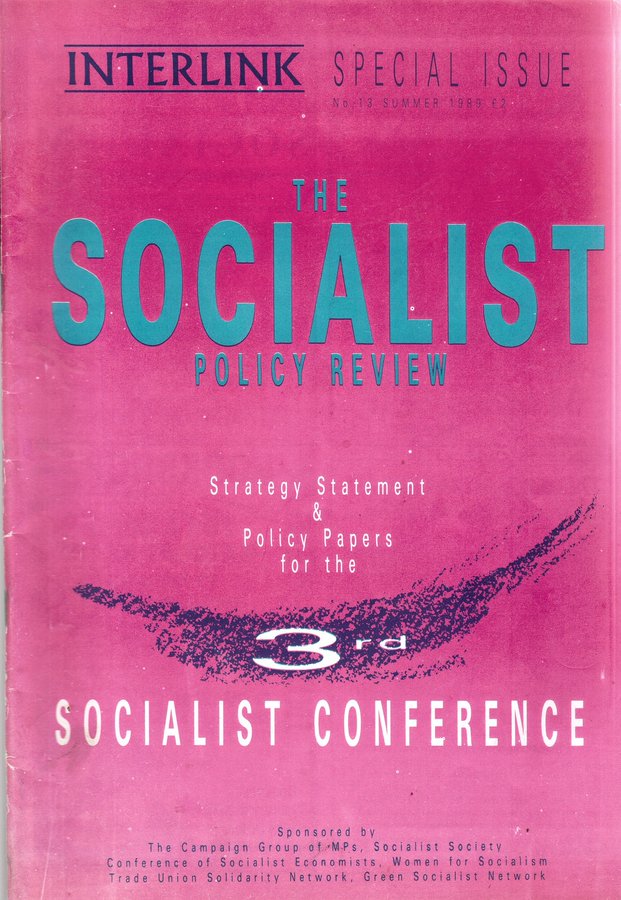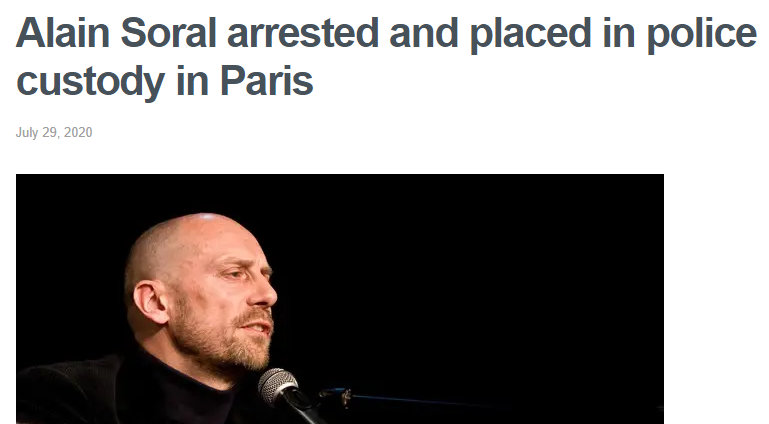
Ideas for a Mass Society?
Is conspiracy thinking gaining ground across the world? Sunday’s anti-Lockdown rally in London has gained a lot of attention. Some on FB who claim to be on the left give the protest credibility, arguing that there are real concerns about restrictions on people’s freedoms, that the event was not “really” right wing”that this pandemic will be used to remould the world, with tighter, top down, medically led authoritarian governments with intrusive surveillance and excessive monitoring.
In this week’s Workers’ Liberty there is a vivid picture of one of the theories that has gained popularity, QAnon.
What exactly do QAnon followers believe? The answer is complicated. By this point, QAnon has snowballed into an all-encompassing super-conspiracy. Believers frequently disagree with each other on details, but there’s room for you in the movement whether you believe that the Earth is hollow or that it is flat.
QAnon centres around a supposed military intelligence officer, “Q”, who is exposing a corrupt cabal in the US government by posting cryptic messages on anonymous imageboards. The first “Q drop” — referring to Q’s arcane messages — appeared on 4chan’s neo-nazi /pol/ board on 28 October 2017. The drops later migrated to 8chan, a site infamous for its popularity among mass shooters and paedophiles.
Other foundational beliefs are: There is a deep state run by Satan-worshipping paedophilic Democrats, who drink the blood of children to satisfy their adrenochrome addiction. (In real life, adrenochrome is the product of the oxidation of adrenaline, and has no addictive properties.)
In Les Origines du populisme published at the end of last year the writers that the failures of the right and he left have left the way open for radical “anti-system” parties. They cite Hannah Arendt, that what we are witnessing is the “passage tumultueux” from a “société de classe” a une société de masse” faite d’individues abandonnés a eux-mêmes au milieu des désordres du monde”. A mass society in which individuals are left alone faced with the world’s tumult, is fertile ground for many forms of ‘anti-system’ ideas.
Mashalleling substantial research they argue that the old class aligned politics has been eroded to the point where in a “mass society” people are mobilised through their resentment, lack of trust in others, and cultural issues. If, in France, there is now a substantial working class vote for the far-right Rassemblement National, it is not a result of wage-earners casting their ballots for the the RN as workers but to show their “défiance générale a l’égard des institutions et du reste de la société.” They, unlike those inclined to favour radical left protests against the ‘system’ are not inclined to demand wealth redistribution, but search security. So that despite there being class divisions, however altered by the decline of industrialisation and production, people’s political consciousness, they argue, are polarised according to different “champs de force” (force fields), notably on immigration, and “valuers d’ordre cultural”.
The Communist vote in France for example, has declined from double figures to a couple of percentage points while the same social groups show a majority backing the RN. . This does not mean that former Parti Communist français voters have migrated to the racist right. It is their contemporary “sociological” make-up. The only legacy the researchers can trace is that the radical left Jean-Luc Mélenchon and La France insoumise I support does show a political connection with areas which showed past Communist voting.(1)
Conspiracy theories could be said to represent this defiance at the degré zéro of confidence in other people and institutions. They are personifications of forces that appear to threaten security. There is some evidence, in France and elsewhere, that there is a cross-over with support for right-wing populism. Full-time proponents of conspiracy theories are on the far-right who draw on a tradition going back to 1930s fascism and beyond and would wish to see a general front of the “people” against the enemy, the cosmopolitan leftists and their puppet-masters, the globalists. Its most recent manifestation is in protests against rules trying to stem the spread of Covid 19 by means such as mask-wearing. (« L’adhésion aux différentes théories du complot est un trait caractéristique des “antimasque’’ »). These display every kind of reaction to destabilising outside forces, the means used to bring in the New World Order.
Hannah Arendt’s The Origins of Totalitarianism has been described as a “story of the deterioration of the state ….woven together with her story of the loss, across all classes, of common interests and a shared world.” (2) In the complex book that tied to uncover the patterns that led to Nazism and Stalinism, Arendt talked of the effects of imperialism – in Rosa Luxemburg’s sense of a drive for expansion and exploitation of ‘non-market’ societies – as creating a ‘mass society’. At the top there is a free-booting class of buccaneers fighting it out in the world market. The politics that resulted eroded civic duty, republican and democratic values,
“When, in the era of imperialism, businessmen became politicians and were acclaimed as statesmen, while statesmen were taken seriously only if they talked the language of successful businessmen and ‘thought in continents’, these private practices and devices were gradually transformed into rules and principles for the conduct of public affairs.”(2)
In the same pile was the “mob” people without any stable place in society. There was tribal nationalism, insisting that “its own people is surrounded by a ‘world of enemies”. There was a “. break down of class system, rise of “one great unorganised, structure less mass of furious individuals…” “The chief characteristic of mass man is not brutality and backwardness, but his isolation and lack of normal social relationships.”(3) , Arendt asserted that ““Totalitarian movements are mass organisations of atomised, isolated individuals.”(4) Conspiracy thinking was their mainstay. They manufactured an ideological a “fictitious world”of plotting enemies. These ideas were sustained by parties, undemocratically run (by the leader principle or Stalinist ‘democratic centralism’) , in effect, secret societies operating the plain light of day. Their audience lapped their propaganda up, unmasking the “true” cabal running the planet.
Can we say that the Web is a mass communication vehicle for such a “fictitious world”.
Paul Mason suggests that in some respects we can,
At a literal level, QAnon purports to explain what neither liberalism nor Marxism nor mainstream conservatism can: why the world doesn’t work; why nothing changes; why power elites persist. But at a sub-literate level it serves a function that Arendt identified in the ideologies of both Nazi Germany and the USSR: to promote irrationalism. Observers of QAnon networks have likened their activities to a collaborative roleplay game: you have to work out what the cryptic “Q-drops” mean, and to do so you have to consult other atomised and confused people. It’s fun, it creates structure and meaning, and then – when you take to the streets over, for example, a road closure proposal by the local council – you “find each other”.
…….
Arendt understood that the purpose of conspiracy theories was to make people knowingly complicit in irrationalism: to shut them off from facts, analysis and reason, and to create a closed world in which everything makes sense. In the “lying world” created by Nazi propaganda, she wrote, “through sheer imagination, uprooted masses can feel at home and are spared the never-ending shocks which real life and real experiences deal to human beings and their expectations.
It is these “uprooted” masses, people without confidence in others, without trust, without a stake in movements that they have confidence in, that can be swept up in conspiracy thinking. Facebook, Twitter, and other social media, make it available, and a participative experience, at the touch of a keyboard. The world of those who individually ‘uncover the truth’ is in this respect, the opposite of the anti-democratic 1930s totalitarian party structures.
The QAnon conspiracy theory, however, is not the work of a single person: unlike the Nazis, we have a networked information society and the “wisdom of crowds”. The theory has a life of its own, and is being deepened and made more comprehensive with the addition of health and lifestyle lunacies, and the Covid-19 conspiracies.
How far the growth of these ideas can be explained in terms of “mass societies”, a society of alienated individuals held together by a culture industry that served the interests of capitalism remains open. Arendt’s theory is more precise than the Frankfurt school’s general picture of cultural “production”, although one might add to her picture a tendency to grasp at the individualist ‘irrationalism’ of a variety of fads, including belief in conspiracies. But her portrait was of the political conditions in which organised bodies of the far-right manufactured and sustained conspiracy thinking as a weapon of struggle, under very different conditions than post-war prosperity and today’s relative economic disjunctions and the processes of a deeper globalisation than the globalisation at play in the 19th century.
There are, at present, no mass totalitarian movements, with disciplined numbers of armed supporters, willing to fight their enemies. National Populism is not totalitarian but claims a monopoly of voice to command a nation’s Sovereign power. It appeals to those “standing outside society’s political representation” with a call to join together against an enemy, not to place them in concentration camps. Its class support may be wide but the class fractions whose driving it are a combination of those who benefit from national protectionism, and, most visible in the British case, the most reactionary elements of finance capital who profit from inter-state competition and markets hemmed in by the same nationalist imperatives without inter-state regulation.
National populism is based on national neoliberalism, private enterprise states, farmed off public services, and efforts to return to a battle for economic advantage on the world market. It has yet to find enduring roots, or structures. but what it has bears little direct resemblance to the totalitarian wave of the 1930s. Trump is a loud-mouth at the head of a 19th century caucus party that’s adapted to the information society. The French Rassemblement National, for example, has, to begin with, only just over 20,000 members and has so far served more as a warning, and a unifying call to back the Macron centre than a government-in-the-waiting. The recent Presidential victory in Poland of the Law and Justice Party has as in Hungary, consolidated an authoritarian, paternalistic state, but has not swept opponents into exile. The Islamist populism of Erdoğan has put opponents in gaol, and is prepared to act to restore Ottoman imperialism yet has not driven dissenting masses into camps.
Britain has only experienced a simulacrum. The Brexit Party were founded by businessmen, railed against foreigners and the EU, headed the British European Polls in 2019, and vanished, with the cash, into their pockets. Johnson dallies with national neo-liberalism and patriotism on behalf of a team of pick-pockets and chancers. And its international project is an effort to grab the coat-tails of Trump….
Zékány observes,
People are thoroughly dissatisfied with the political establishment. They feel powerless, and on some level they know that the ruling class — although they wouldn’t use the term — doesn’t care about them. The years pass, they keep voting, and things don’t seem to get any better. Inequality is growing, and has been growing for years.
The immediate thought is, what can we do about that? How can we build, as Mason proposes, ” a political and social alternative to the present” To begin with he says we need to explain “, what’s wrong with QAnon, and climate denial, and the “plandemic” myth, needs to be the subject of sermons, school curricula and, above all, the speeches of serious politicians.” How could we encourage a politics built on trust and projects that recognise the class structures that hold people back, exploit them and divide them in a common project to redistribute wealth and change things for the better?
The last group would not include those in the Labour Party and left fringes who spend most of their time attacking the new Labour Leader, Keir Starmer.
******
(1) Les Origines du populisme. Enquête sur un schisme politique et social (2019) . Yann Algan Elizabeth Beasley Daniel Cohen Martial Foucault
Le populisme est le produit de deux secousses telluriques. Premier séisme : la montée d’un immense ressentiment contre les partis et les institutions politiques. Face à l’échec de la droite et de la gauche à contenir les excès du capitalisme, la radicalité « anti-système » a brisé les compromis que l’un et l’autre camps étaient parvenus à édifier. Deuxième séisme : la fin de la société de classes, au profit d’une société d’individus pensant leur position sociale en termes subjectifs. Une nouvelle polarité en résulte, qui sépare les « confiants » des « méfiants » envers autrui. La droite populiste surgit au croisement d’une double méfiance – à l’égard des institutions politiques et à l’égard de la société. Elle prospère sur le désenchantement démocratique, tout en renouvelant le clivage gauche-droite. Fondé sur des données inédites, cet ouvrage se révèle essentiel pour comprendre le présent et l’avenir des sociétés démocratiques.
(2) Page 220. Hannah Arendt. For Love of the World. Second Edition, Elisabeth Young-Bruehl. Yale University Press. 2004.
(3) Page 138.The Origins of Totalitarianism. Hannah Arendt. André Deutsch. 1986 (1951) See also. Hannah Arendt Politics, History and Citizenship, Phillip Hansen. Polity Press. 1993.
(4) Page 317,The Origins of Totalitarianism.
(4) Page 313,The Origins of Totalitarianism.
See also:



![Extinction Rebellion demand climate emergency bill [Video]](http://web.archive.org./web/20200907133526im_/https://s.yimg.com/hd/cp-video-transcode/prod/2020-09/01/5f4e6a6fe7e2901425acf047/5f4e6a6fe7e2901425acf048_o_U_v2.jpg)























![Seeking ways to tell 'My China Story'[2]- Chinadaily.com.cn](http://web.archive.org./web/20200907133526im_/https://www.chinadaily.com.cn/china/images/attachement/jpg/site1/20160530/7427ea21079d18b66c513a.jpg)

































